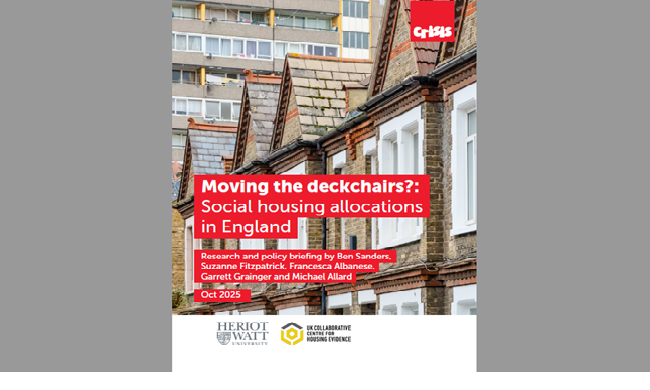Moving the deckchairs? Social housing allocations in England
Research from Crisis, Heriot-Watt University, and the UK Collaborative Centre for Housing Evidence investigated how social housing is allocated by housing associations across Great Britain. The policy briefing on this research presents some of the key findings of this research, relating specifically to social housing allocations in England.
Key findings:
- Through a survey of 68 general needs housing associations in England, as well as interviews and focus groups with local authority and housing association representatives, the research sheds light on some of the challenges in the allocation of social housing supply.
- While relationships between housing associations and local authorities were generally viewed as positive, major concerns were highlighted about the adequacy of information provided by local authorities when they nominate a household for a tenancy, and 24% of housing associations reported refusing LA nominations because the offer was unsuitable.
- Concerningly, the research found that affordability issues in England are preventing access to social housing for low-income groups.
- Nearly one-third (31%) of responding housing associations said that pre-tenancy affordability checks often bring information to light which leads to the offer of social housing being deemed unsuitable for the applicant.
- Nearly a quarter (24%) said that households below a certain income threshold are sometimes excluded from the social housing register. Welfare cuts and high cost of living were cited as structural factors contributing to this.
Reference:
Sanders, B., Fitzpatrick, S., Albanese, F., Grainger, G. & Allard, M. (2025) 'Moving the deckchairs? Social housing allocations in England'. London: Crisis.



